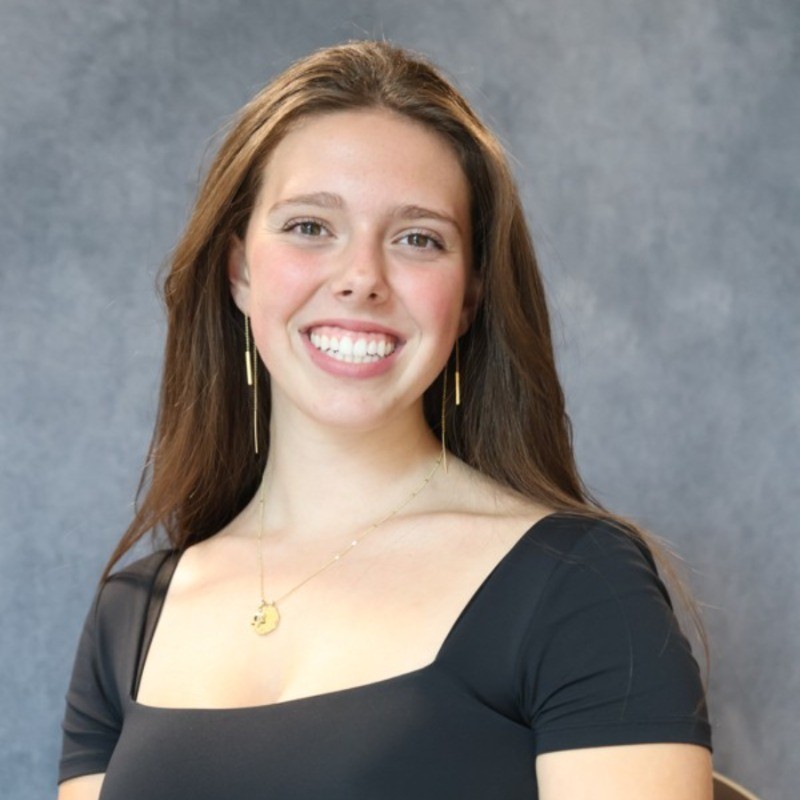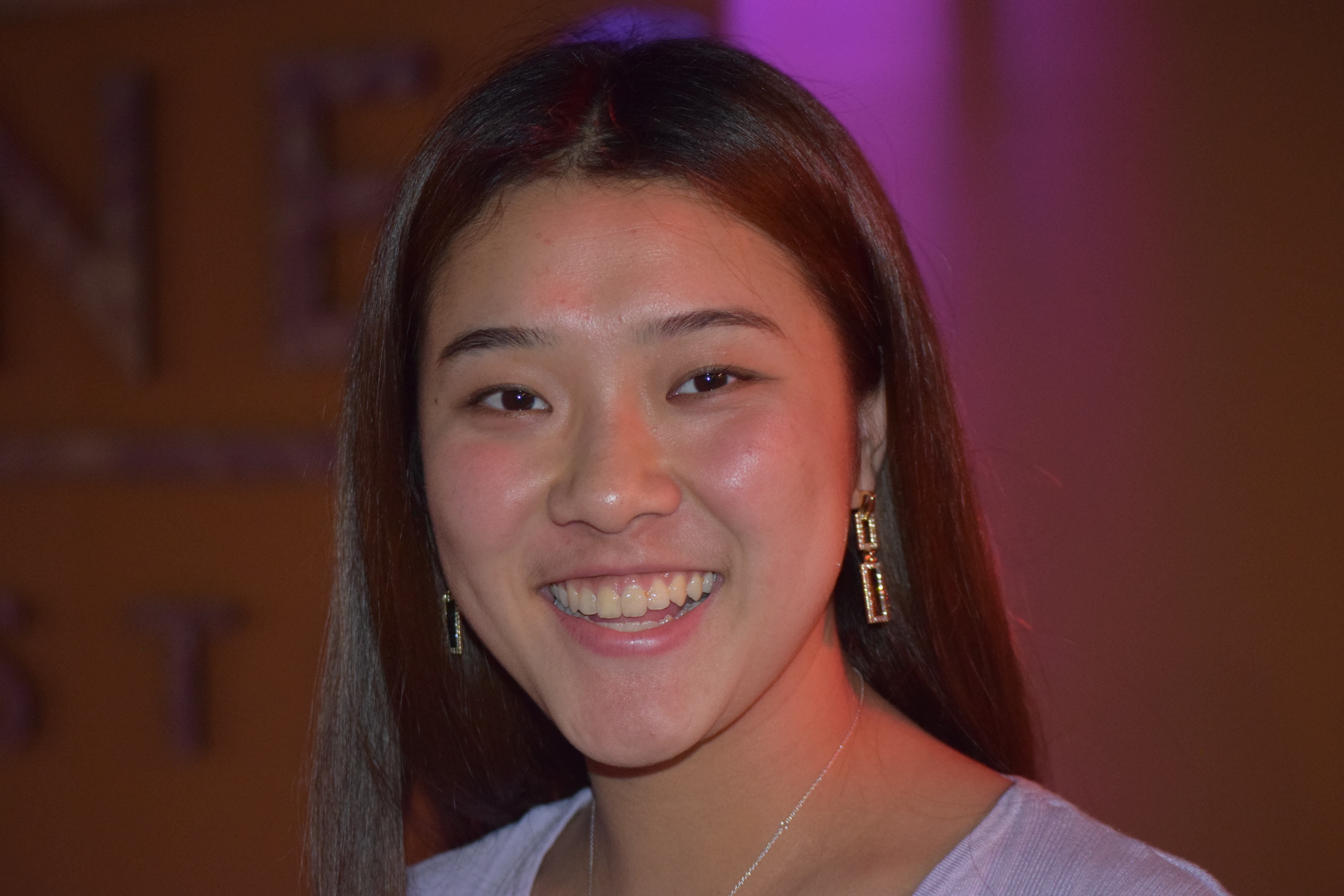Mark your calendars for orientation!
Mark your calendars for orientation! The January Admission orientation is in January right before classes start. Watch out for an email with further information.

Congratulations! We can’t wait for you to join us at Babson as part of our vibrant, invigorating campus. While it might feel more common to begin your college experience in the fall, Babson welcomes around 100 new students in January.
It means you’re #BabsonBound! Besides your start date, everything about your Babson experience remains the same. You will have the same experiences, resources, and support as those who begin in the fall. It’s time to get excited!
“I was concerned about finding a good circle or a community. Babson helped with this because of its smaller size and extracurricular clubs. Babson does a great job of making events and helping people integrate into campus life. I have found a good circle of friends and found myself integrated into campus life even though it was a concern the first semester.”
Absolutely not.
Your orientation is in January, right before classes start.
You will take courses that are equivalent to the experience.
You are the Babson Class of 2029 through and through! You can stay a December grad or work with your advisor to graduate in May.
Yes, first-year students are required to live on campus. Placements will be with another new arrival or with a student who has been on, or is returning to, campus.
Whatever you want! Students work, decompress, start businesses, travel, pursue hobbies, and spend time with loved ones.
We know you have questions about the January admission process. We asked students who where admitted to Babson in January to share their advice to the incoming cohort.

"Just be kind, put yourself out there, be willing to talk, and the right people will find you. Babson is an extremely tight knight community, and it is important to learn to appreciate that. It can feel very small at times, but it is such a gift to have such a large group of people you can always count on."

“Enjoy academics, but also join new clubs and organizations because you’re just getting started. Try out as many new things as possible. When you come back for your second semester, have an idea of what you really want to commit to. For me, that included playing rugby and being part of the new Herring Family Entrepreneurial Leadership Village.”

"Many first-year students are still forming friendships, even if it feels like everyone has already found their group. Don’t hesitate to reach out and say yes to all opportunities, you’re not alone in feeling this way. Joining different clubs is a great way to meet people with similar interests. Professors are also an incredible resource, they can connect you to opportunities, organizations, and experiences you might not find on your own."

“Step outside of your comfort zone, especially when meeting people. You are a January admit, but it doesn’t have to be your identity. Other students and faculty want to know you as you, not just as part of a cohort. Feeling out of place as a January admit will not be on your mind forever. Also, plan what you want to do with the fall before coming to Babson.”
Mark your calendars for orientation! The January Admission orientation is in January right before classes start. Watch out for an email with further information.
Babson deeply values the residential learning experience for new college students. The dynamic nature of learning at Babson, with options for education abroad, semester-long internships, and accelerated graduation, opens up space in our residence halls that provide us with the opportunity to admit talented students to join our community. January admission brings approximately 100 new students to campus in the spring semester with unique, extended experiences after high school who add to the excitement and energy to our community.
No, they are different programs. They do share some resources, and each cohort of students will arrive on the Babson campus in January. However, both applicant classes are different, and the programs are not interchangeable. If you have questions about the Babson Begin program, please view this webpage.
Yes, January admission students have access to the same courses and academic rigor as all Babson students. In addition, students are assigned a class dean who helps answer any questions they may have prior to course registration.
Students starting in January will take the normal course load of all first semester students. A normal course load for a first semester student is 16 credits and they will take classes with all first-year classmates, choosing among core courses that include Financial Accounting, Business Law, Rhetoric, Quantitative Methods, and the Liberal Arts Foundation course.
In addition, January students take two courses in their first semester that mirror the two-semester course Foundations of Management and Entrepreneurship (FME): Foundations in Entrepreneurship: Hatch & Hustle and Foundations in Management: Organizational Behavior Lab.
Both courses cover the same academic content and strategic and critical thinking skills explored in FME. You will gain an equivalent knowledge base, including exploring entrepreneurial leadership principles, the Entrepreneurial Thought & Action® (ET&A™) mindset, and teamwork. This class combination allows January students to progress academically alongside the fall cohort.
Specifically, in Foundations in Entrepreneurship: Hatch & Hustle, you will launch a venture (or “side hustle”) in a more condensed version of the FME experience. As you work in small teams, this course teaches you how to move forward when you don’t have all the answers. You’ll act, learn from what happens, and build toward something better (That’s ET&A™ in action!). In the Organizational Behavior Learning Lab, you engage in workshops, simulations, and reflective assignments to build practical management and career skills.
In addition to these two courses, students take other key foundational courses, including Introduction to Financial Accounting and Foundations of Critical Inquiry, to complete their schedule.
Yes, you have the opportunity and are encouraged to get involved with clubs and organizations in your first semester. Babson is a welcoming, friendly community, and there are plenty of people to get to know and hang out with. You will live in housing with other members of your January admission cohort and/or other first-year students so you'll meet plenty of new people!
At the January Orientation program, students will be given all the information on how to get involved so you can assimilate quickly with the Babson community. Be sure to heck out the student organization fair where you can learn more about getting involved in BabsonARTS, Greek Life, club sports, professional organizations, and more!
Students enrolling in January will complete their education in December following 8 semesters of coursework. Students may elect to take courses in the Summer Session after their first semester, or following their third full semester at Babson (if they want to graduate in May with their incoming class). If no summer courses are taken, students enrolling in January will complete their education in December following 8 semesters of coursework. Students can develop an individualized plan with their advising team once they arrive at Babson.
According to Babson’s Undergraduate Center for Career Development, there are advantages (from the job seeker’s perspective) to graduating in December. Many employers don’t operate on an academic calendar, and seek talented graduates earlier than commencement in May. Students admitted for January have the flexibility to start full-time work in January or wait until another start date throughout the year. This is important to know when considering the pros and cons of starting college in the spring.
January First Year students are required to live on campus for their first semester. Placements will be with another new arrival or with a student who has been on, or is returning to, campus.
No. The admissions committee strives for consistency in its assessment standards and a student’s preference is simply another piece of information for use by the admission staff.
No. Being admitted in January is a full admission to the College community. We choose students for January admission because we see in them students who will wisely use time between high school graduation and their studies at Babson. Students admitted in January tend to be highly energetic leaders in their school communities or students who have already sought unconventional and creative opportunities in their high school careers. These students typically come to Babson ready to “hit the ground running.”
For Early Decision applicants who are deferred to the Regular Decision applicant pool, it is possible that they will be offered January admission even if they have not indicated that preference or willingness. In this case, admission is no longer binding and students are not required to attend Babson in the January term.
No. Students admitted for January/spring admission are chosen from the same applicant pool as September students and all students are notified of their admission at the same time. Students may indicate on their application materials their preference for starting in January, but this is ultimately a decision made by the Undergraduate Office of Admission. Some students who indicate an interest in September may be offered a place in our January class. Many applicants now tell us they’d prefer to be admitted for January and some even outline their plans for the fall in their applications.
You may wonder about what to do during a gap semester or how to spend a gap year. We do not consider the Babson January admission program the same as taking a gap year or semester programs, though the benefits and experience are similar to other colleges with gap-year programs.
While not the same as a gap semester or gap-year programs, our spring admitted students find the time in between high school and college to be similarly fulfilling. The following is a short sampling of some activities and pre-college programs pursued by students recently admitted for January:
Your next step is to get to know us even more. We are ready to answer all your questions about Babson.